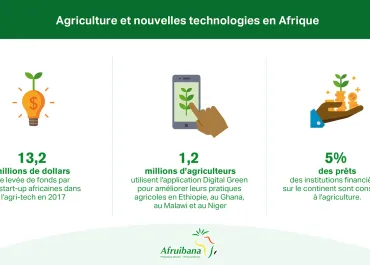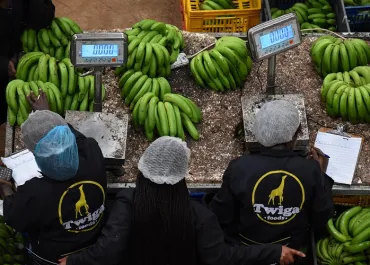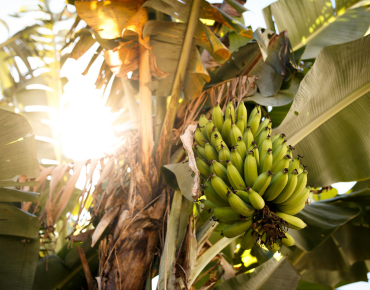
Why urban agriculture is an opportunity for African cities
24 July 2018
Agri-startups: another facet of the African entrepreneurial revolution
20 April 2019To unlock Africa’s agricultural potential and its domestic food market, technological innovation will undoubtedly be one of the main levers to be used. It is commonly misunderstood that agriculture is a high-tech sector. The use of the latest innovations is essential to increase productivity, especially when producers export to international markets.
In Africa, digital transformation has disrupted many sectors, particularly agriculture. An “African agritech” is born, with many entrepreneurs offering solutions adapted to the problems of African farmers, creating start-ups that complete the local value chain. And the banana industry benefits like many other fruit industries.
Take the case of Twiga Food, a Kenyan startup that just raised US$10 million last November from the International Finance Corporation, the World Bank Group. Awarded the “Most Promising Company” prize at the Africa CEO Forum in 2018, Twiga Food initially started as an intermediary between banana producers and retailers. Noting that the Kenyan banana market is highly fragmented, with erratic supply in an informal environment, founder Grant Brooke saw an opportunity to create a mobile platform to connect the various Kenyan banana economic actors.
Today, nearly 13,000 farmers and 6,000 salesmen are connected by this platform. Twiga has now expanded its customer base to include tomato, onion and mango growers. Its logistical organisation, with a fleet of small vehicles, allows them to significantly reduce post-harvest losses and ensure timely deliveries. This is one of the key points of its success: in Africa, many producers are left without outlets because of transport and storage constraints. The development of these mobile platforms, which facilitate the connection between producers and retailers, particularly through a well-organised logistics and transport system, makes it possible to facilitate the flow of consumer and other market goods. Twiga’s case is not unique. Many start-ups are created each month in Africa to meet the needs of the agricultural and agri-food sector, both informal and formal. However, the growth of the private sector should not overshadow the importance of public investment, particularly in transport infrastructure. The development of transport and storage capacity is essential to link cities and the countryside, particularly to enable rural producers to supply major African cities.




